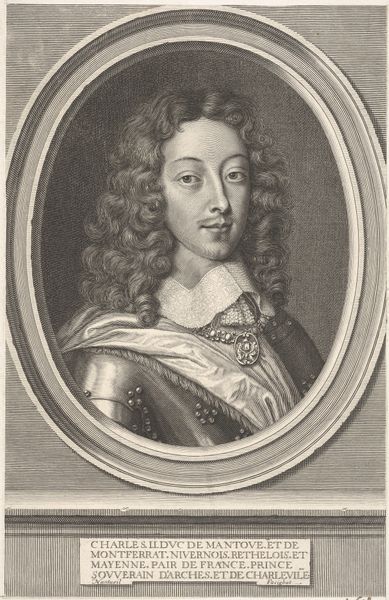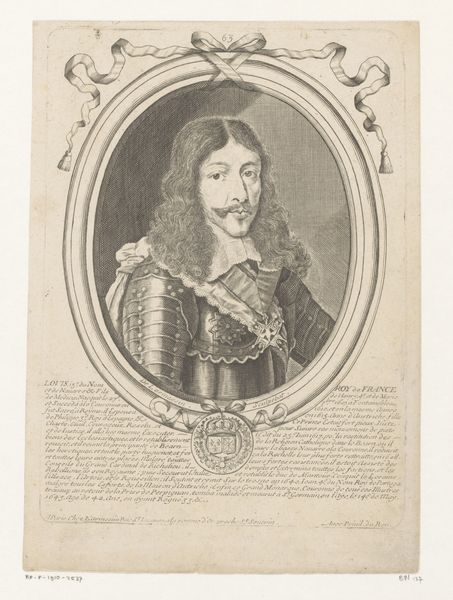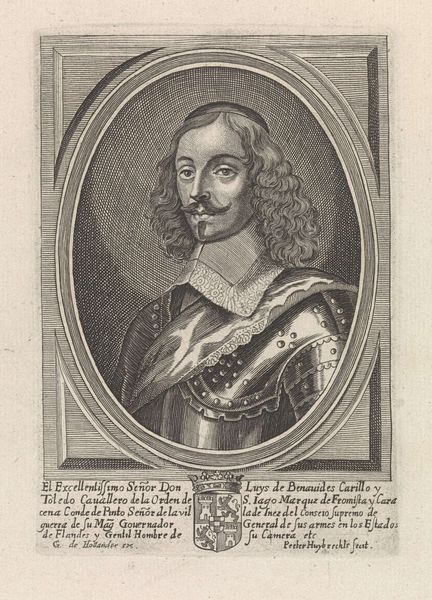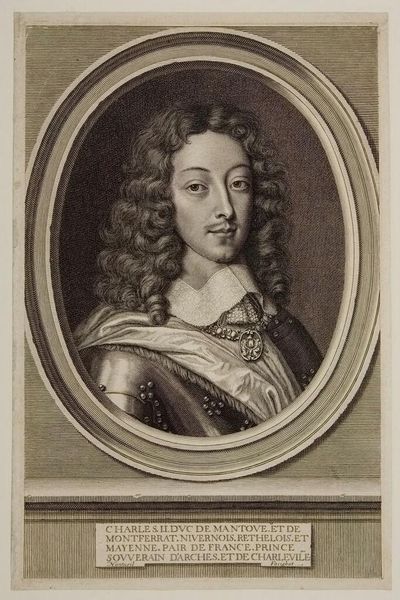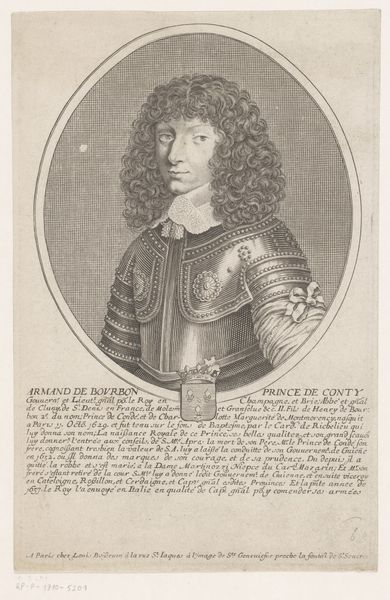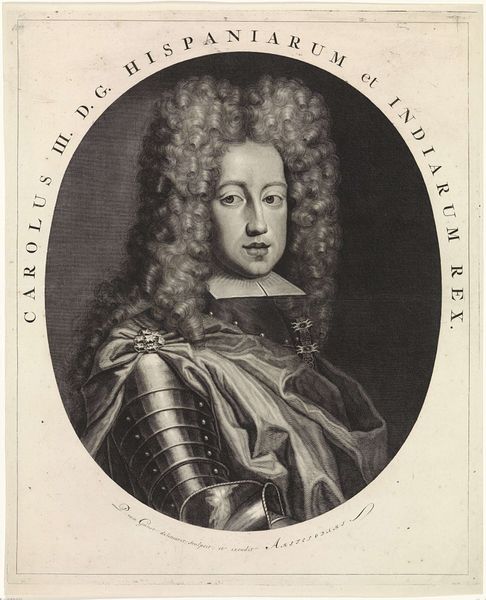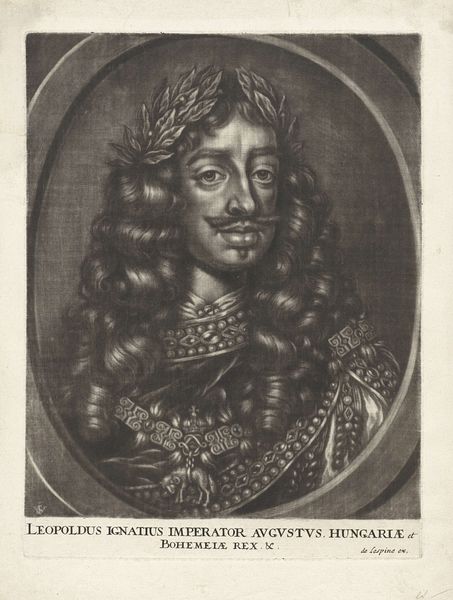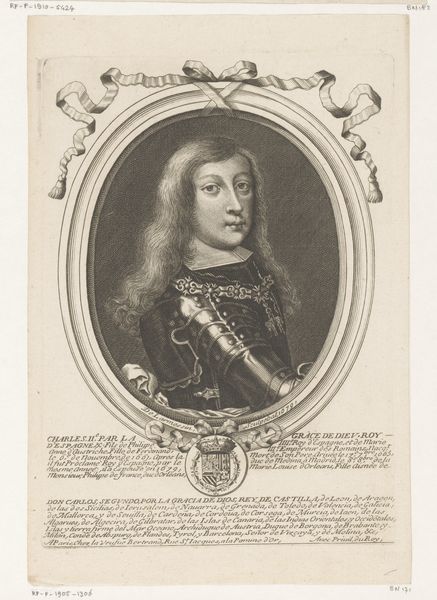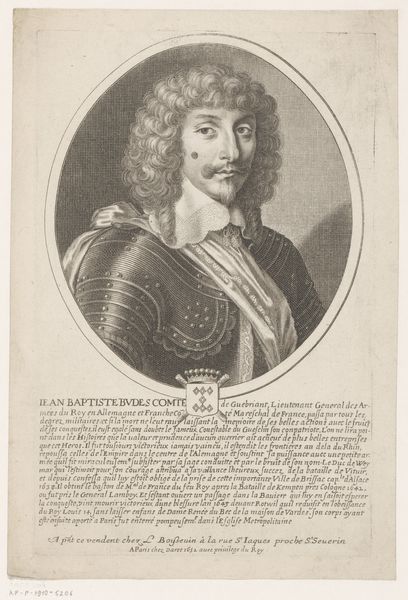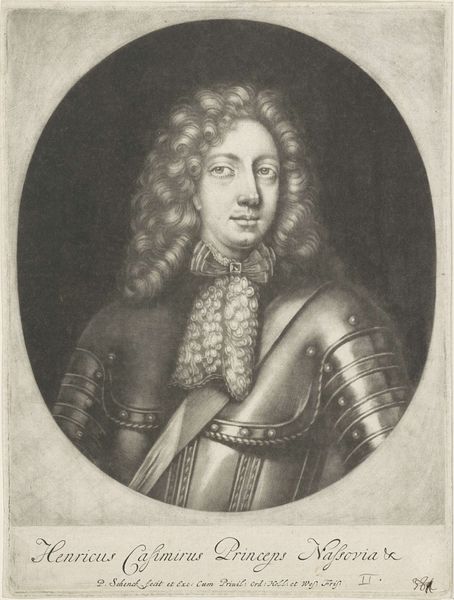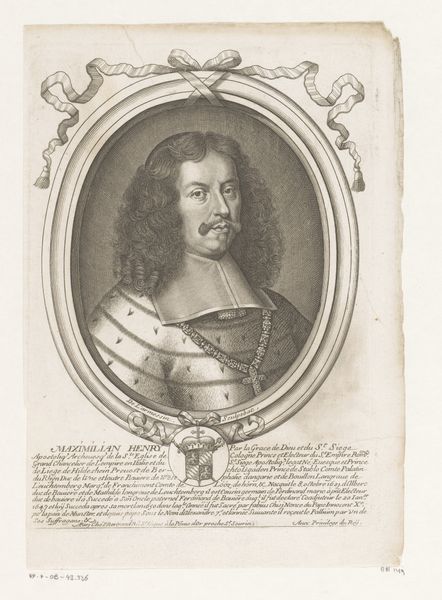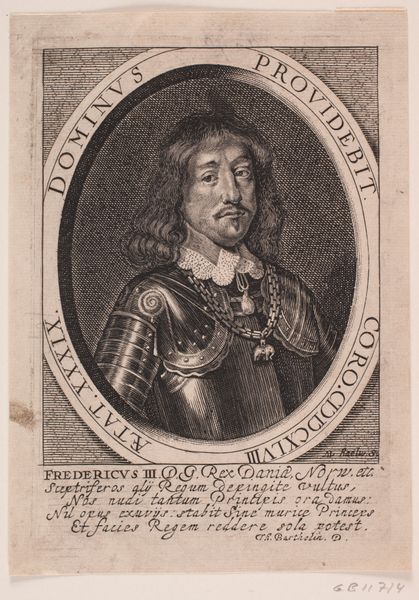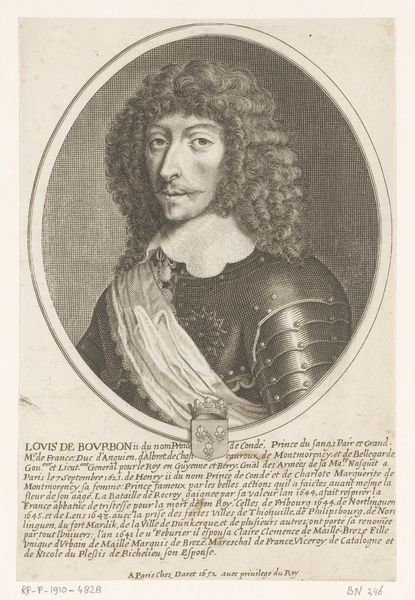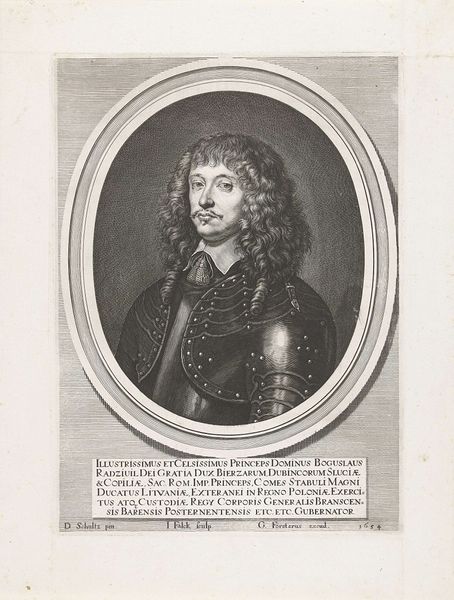
engraving
#
portrait
#
baroque
#
old engraving style
#
history-painting
#
engraving
Dimensions: height 206 mm, width 132 mm
Copyright: Rijks Museum: Open Domain
Jean Frosne’s portrait of Charles II of Mantua presents us with a visual compendium of power, prestige, and dynastic ambition. The armor speaks of military might, an explicit display of earthly power and protection. But observe the medallion hanging prominently from his neck. This object speaks to the cultural memory of ancient Rome. Medallions were originally worn by emperors and high-ranking officials as symbols of authority. This calculated reference to antiquity underscores a longing for a glorious past, a golden age. Across time, this symbol is used in different contexts: in medieval Europe, rulers adopted similar emblems to legitimize their power. It reappears in Renaissance portraiture, where wealthy patrons donned medallions to align themselves with the cultural and intellectual achievements of antiquity. Each time, the form shifts slightly. New meanings attach themselves to the old, forming a kind of palimpsest. This portrait, then, is not merely a record of appearance, but a carefully constructed statement of ambition, linking Charles II to a lineage of power stretching back through time. It is as if the image itself embodies the enduring human desire for recognition, legacy, and a place within the grand narrative of history.
Comments
No comments
Be the first to comment and join the conversation on the ultimate creative platform.
